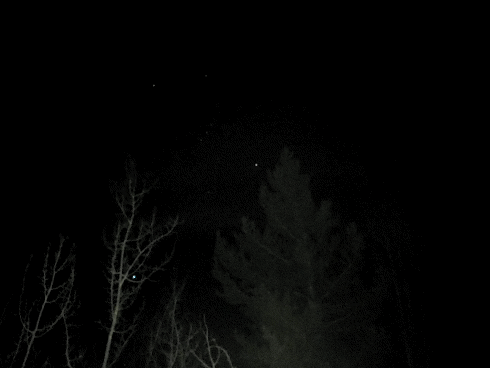TallGrass wrote: ↑Thu Mar 30, 2023 1:18 amI REALLY like those shots!Bazillions wrote: ↑Mon Mar 27, 2023 8:16 pmTook some pics of the aurora the other night. I only have like a foot tall tripod which makes it too much of a pain to try and frame shots or anything so this is the best I got.

I don't know if you have a time lapse option, or can do a video then edit afterwards, but a .gif or such would be really cool! There are also online .gif converters, compressors, etc.
If this is near you or a parking lot, you could always haul something out to put the tripod on to frame as you like, and a car would give you place to duck out of the cold.
I posted this earlier in this thread, and you can see my breath wafting up into the night air to look at Orion when I stopped on a ski trail.

as you requested, here are some tips
you need the following for a good aurora shot:
1) tripod or stable base/hands
2) dark skies
3) high ISO; 1600, 3200, 6400 optimal depending on camera
4) warm camera batteries
5) cold acclimatized lens and camera sensor
6) wide angle lens, preferably 28mm and wider
7) wide aperture lens, f2.8 or better is optimal
8) dress warm and be patient
9) adjust your eyes to the dark
10) manual focus on bright stars to get pinpoint/sharp focus
11) shutter speed varies according to speed and brightness of the aurora; set camera to manual and experiment with shutter speed at a fixed aperture and ISO setting
12) for advanced photography, take 10-30 dark frames and use software to use these frames to subtract out sensor noise
13) use software to clean up some sensor noise
14) good lens glass can help, but isnt required
concepts for sunset/sunrise photography are similar to taking night sky photos
